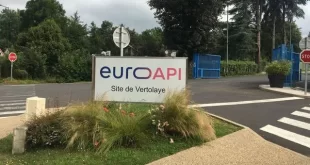The Ludwig Boltzmann Institute for Network Medicine is a brand-new research hub dedicated to tackling some of the most complex challenges in modern medicine.
We embrace a research paradigm that puts fundamental insights derived from biomedical data in the driver’s seat. Our mission is to understand the architecture of cross-scale networks – from the molecular level to the whole body – that underpin health and disease, and to use this understanding to transform how diseases are diagnosed, treated, and managed.
We are a radically interdisciplinary team, uniting experts from fields as diverse as biology, medicine, physics, mathematics, architecture, and art. This unique mix creates an environment where science, technology, and art converge, allowing bold and unconventional ideas to thrive.
Embedded in a vibrant network of academic, clinical, and industry partners, we are committed to bringing our ambitious vision to life and creating impact that reaches beyond academia.
For more information on who we are and what we do, please visit our website https://netmed.lbg.ac.at
Who we are looking for
We are seeking curious and motivated individuals that are eager to look beyond their background in one of the following fields: biology, medicine, physics, mathematics, informatics, computing, software engineering, AI, digital arts … or anything else really that you believe will contribute to our mission. Our work is team oriented. Our team is open-minded and diverse. We are passionate about what we do and aspire to be really good at it. To enroll in the PhD program you will need a masters degree (or equivalent). Our working language is English.
What we offer
As a PhD student at the LBI-NetMed, you will join a doctoral program at the University of Vienna and benefit from our extensive academic, clinical, and industry network. Our new office space was carefully designed to offer flexible workspaces and to foster collaboration and inclusivity. We offer relocation support for you and your family, as well as comprehensive health insurance. You will have opportunities to attend international conferences and access training programs to support your career development. With flexible and family-friendly working hours, a home office option, and a supportive team culture, we prioritize your personal and professional development.
Applications and timeline:
To apply, please use our online application portal along with a cover letter, CV, as well as contact information of 2 referees.
- Application deadline: 12th January 2025
- Video-based interview: 20th-27th January 2025
- In-person visit in Vienna: 20th-21st March 2025
- Start date: flexible, upon agreement with principal investigators
For more information or questions, please do contact us at phd-applications@lbi-netmed.com.
Meet the LBI-NetMed faculty
Jörg Menche is the founding director of the LBI-NetMed. A physicist by training, he specialized in network theory during his PhD and later network medicine. The broad ambition of his group is to use tools and concepts from network theory to elucidate the complex machinery of interacting molecules that constitutes the basis of (patho-)physiological states. Major areas of interest are:
- What are the molecular network patterns that define diseases?
- What are the basic principles of how perturbations of biological systems influence each other?
- Can we explore biomedical data in an entirely different way using Virtual Reality (VR) and Artificial Intelligence?
André Rendeiro: André’s group studies how cells interact to generate the complex structure and function of the human body. They aim to uncover the fundamental code of cellular organization underpinning our body’s function. To achieve this, they develop and use computational methods for spatial data analysis (spatial transcriptomics, highly multiplexed imaging, histopathology) and integrate it with molecular data (transcriptomics, proteomics) and clinical data. Key research questions include:
- How can we robustly define tissue architecture patterns across tissues and organs?
- Are there unknown recurrent tissue architecture patterns characteristic of health and disease?
- Can tissue architecture patterns influence treatment effectiveness or response?
Julia Guthrie: Julia’s lab studies the network-based organization of human disease from the molecular to population-level, to produce therapeutically and clinically relevant insights. By leveraging and integrating various types of data modalities, they set out to develop predictive models for disease onset, progression, and treatment response. In particular, the group is interested in:
- How can we better identify the genetic determinants of mono and oligogenic diseases?
- What are shared molecular mechanisms that underlie clusters of co-occurring diseases?
- Can we identify subpopulations with distinct disease or treatment response trajectories?
Barbara Geist is an adjunct faculty member of the LBI-NetMed and senior scientist at the Division of Nuclear Medicine of the Medical University of Vienna. Nuclear medicine allows for visualizing molecular and biochemical processes in the body through a range of powerful imaging techniques (e.g. total-body positron emission tomography) and various tracers. These processes can be quantified with kinetic modeling and network analyses. Barbara is particularly interested in predicting outcome and disease progress with the overall and mutual in-vivo behavior of certain proteins, molecules and drugs.
Stefan Thurner is an adjunct faculty member of the LBI-NetMed. He has a background in theoretical physics and economics and is a full professor at the Medical University of Vienna, external professor at the Santa Fe Institute and president of the Complexity Science Hub Vienna. He contributed to a wide range of fields, including fundamental physics, applied mathematics, network theory, evolutionary systems, life sciences, economics, finance, and social sciences. In recognition of his outstanding achievements, Stefan was elected Austrian Scientist of the Year in 2017.
Job Features
| Job Category | Doctorat |
 Etudes Non Stop Study Non Stop
Etudes Non Stop Study Non Stop




